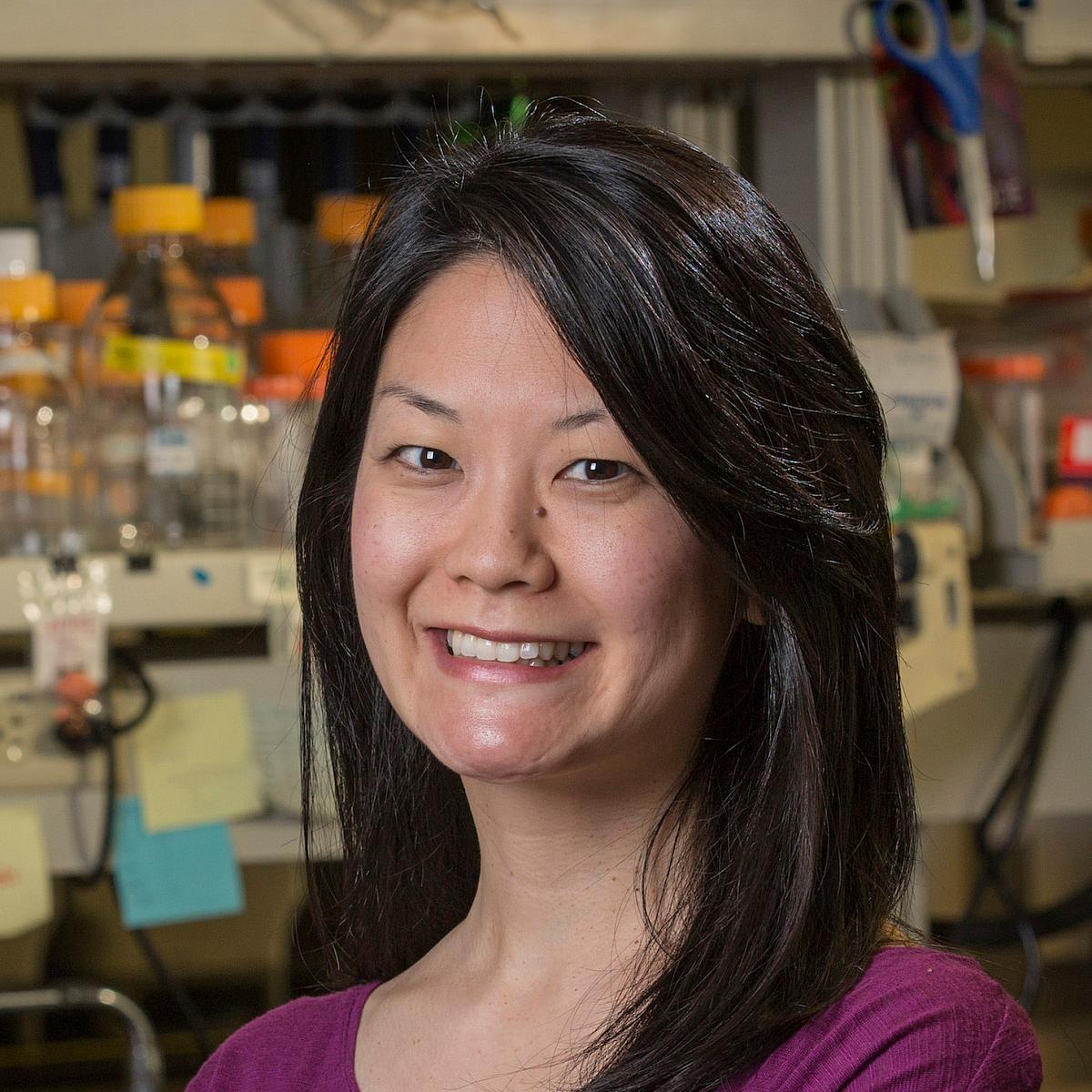
Melanoma Research Labs

Grossman Lab
Principal Investigator:
Douglas Grossman, MD, PhD
The Grossman Lab investigates genetic factors underlying melanoma risk and to develop novel strategies for melanoma prevention. Roughly 10% of melanoma patients have a positive family history of melanoma, and germline variants in the CDKN2A (or p16) gene are identified in about one-third of melanoma families. We study how particular p16 variants affect pathways involved in melanoma development using cell-based and animal models. The major environmental risk factor for melanoma is UV exposure. We have explored anti-oxidants and anti-inflammatory drugs for their ability to protect against the various harmful effects of acute UV exposure. For these studies, we employ genetically engineered mouse models and high-risk human subjects to test whether particular compounds can reduce UV-induced melanoma in mice and prevent UV-induced damage to moles.

Allie Grossmann Lab
Principal Investigator:
Allie Harris Grossmann, MD, PhD
The Grossman Lab focuses on understanding mechanisms of cancer progression and developing clinical interventions. Our goals are to uncover novel mechanisms of tumorigenesis and metastasis; identify biomarkers that prognosticate disease progression or predict treatment response; and collaborate with industry to develop new therapies for the prevention and treatment of cancer progression.

Holmen Lab
Principal Investigator:
Sheri L. Holmen, PhD
A major initiative in the Holmen Lab has been to develop a mouse model of melanoma that is similar to the human disease. We have used this model to identify genes and proteins with differential roles in melanoma initiation, resistance to targeted therapy, and disease progression. Metastasis is responsible for more than 90% of all cancer-related deaths; unfortunately, melanoma has a tendency to metastasize early in disease progression. In melanoma patients, the most common sites of metastases are skin, lung, and brain. Brain metastases are associated with extremely poor prognosis and are often responsible for treatment failure. Therefore, we focus our research efforts on furthering understanding brain metastasis so improved therapies can be developed for these patients.

Hu-Lieskovan Lab
Principal Investigator:
Siwen Hu-Lieskovan, PhD, MD
Dr. Hu-Lieskovan’s laboratory uses cutting-edge technologies to investigate mechanisms of resistance to immunotherapy, develop novel combination strategies to overcome resistance, improve efficacy, and monitor and prevent immunotherapy-induced toxicities. Her team conducts clinical trials to bring the discovery from her laboratory to the clinic and to improve the effectiveness and tolerability of immunotherapy, with the ultimate goal of bringing the survival benefit of immunotherapy to every patient.

Judson-Torres Lab
Principal Investigator:
Robert L. Judson-Torres, PhD
The Judson-Torres Lab investigates how melanoma begins. One major focus is characterizing distinct types of human melanocytes, and using this knowledge to uncover candidate therapeutics for combating understudied and particularly deadly subclasses of the disease. A second major project characterizes melanocytic nevi—the common mole—which can give rise to melanoma. By deciphering the molecular mechanisms that stabilize moles against transformation, we hope to inform strategies for prevention and early intervention of the disease.

McMahon Lab
Principal Investigator:
Martin McMahon, PhD
The McMahon Lab is interested in discovering therapeutic vulnerabilities in melanomas driven either by mutationally activated BRAF or NRAS. We have a particular focus on targeting the RAS-regulated MAP kinase pathway or the PI3’-kinase pathway and their downstream effectors. Our long-term goal is that research conducted in our laboratory will be translated into novel clinical trials that will benefit patients with melanoma.

Ryan O'Connell Lab
Principal Investigator:
Ryan O'Connell, PhD
Our laboratory at the University of Utah is exploring the function of non-coding RNAs (including microRNAs) during inflammatory responses. Furthermore, we are investigating why disruptions in non-coding RNA expression or function is linked to human diseases such as autoimmunity and cancer.

Reeves Lab
Principal Investigator:
Melissa Reeves, PhD
The Reeves Lab has established a powerful novel system to model tumor heterogeneity in vivo, in which we can establish and modulate heterogeneous tumors made up of multiple, fluorescently-labeled tumor populations. We are also investigating the impact of neoantigen heterogeneity—which arises from mutation heterogeneity—on the anti-tumor T cell response, and tumor evolution following immunotherapy.

Roh-Johnson Lab
Principal Investigator:
Minna Roh-Johnson, PhD
We use a combination of animal models and cell culture techniques to understand the microenvironmental influences on tumor cell behaviour in vivo.

VanBrocklin Lab
Principal Investigator:
Matthew W. VanBrocklin, PhD
The VanBrocklin Lab focuses on developing agents to harness the immune system to eliminate melanoma. To this end, we have developed a class of novel oncolytic viruses that selectively replicate in tumor cells. Systemic or local delivery of these viruses leads to upregulation of pro-inflammatory cytokines, direct tumor lysis, and release of tumor antigens. This culminates in long-lasting, host-directed antitumor activity, which is enhanced when combined with immune checkpoint blockade. We are currently expanding our preclinical assessment and viral production capacity while actively seeking partners to advance these agents clinically.

Wu Team
Principal Investigator:
Yelena Wu, PhD
The Wu Team focuses on melanoma prevention among children, adolescents, and their families. Early life behaviors such as use of sun protection are key risk factors for developing melanoma. We develop novel ways of changing peoples’ behaviors and helping them understand their risk for melanoma. Interventions we design are delivered through multiple modalities, including telehealth, in-person, in schools, and through everyday technologies such as cell phones. Our goal is to help young people engage in melanoma preventive behaviors consistently while continuing to lead active and healthy lives, so that they lower their risk for developing melanoma later in life.

Young Lab
Principal Investigator:
Arabella Young, PhD
The Young Lab is dedicated to investigating strategies that modify the immune response to improve both treatment safety and efficacy for patients.
Melanoma Center Leaders

Douglas Grossman, PhD, MD
